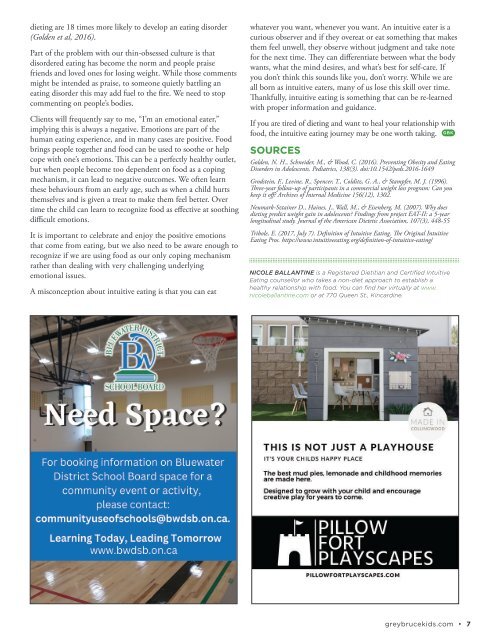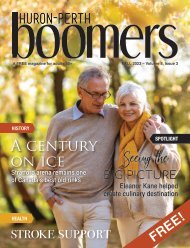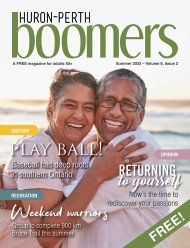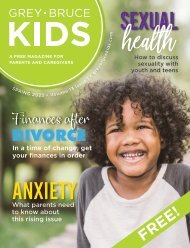You also want an ePaper? Increase the reach of your titles
YUMPU automatically turns print PDFs into web optimized ePapers that Google loves.
dieting are 18 times more likely to develop an eating disorder<br />
(Golden et al, 2016).<br />
Part of the problem with our thin-obsessed culture is that<br />
disordered eating has become the norm and people praise<br />
friends and loved ones for losing weight. While those comments<br />
might be intended as praise, to someone quietly battling an<br />
eating disorder this may add fuel to the fire. We need to stop<br />
commenting on people’s bodies.<br />
Clients will frequently say to me, “I’m an emotional eater,”<br />
implying this is always a negative. Emotions are part of the<br />
human eating experience, and in many cases are positive. Food<br />
brings people together and food can be used to soothe or help<br />
cope with one’s emotions. This can be a perfectly healthy outlet,<br />
but when people become too dependent on food as a coping<br />
mechanism, it can lead to negative outcomes. We often learn<br />
these behaviours from an early age, such as when a child hurts<br />
themselves and is given a treat to make them feel better. Over<br />
time the child can learn to recognize food as effective at soothing<br />
difficult emotions.<br />
It is important to celebrate and enjoy the positive emotions<br />
that come from eating, but we also need to be aware enough to<br />
recognize if we are using food as our only coping mechanism<br />
rather than dealing with very challenging underlying<br />
emotional issues.<br />
A misconception about intuitive eating is that you can eat<br />
whatever you want, whenever you want. An intuitive eater is a<br />
curious observer and if they overeat or eat something that makes<br />
them feel unwell, they observe without judgment and take note<br />
for the next time. They can differentiate between what the body<br />
wants, what the mind desires, and what’s best for self-care. If<br />
you don’t think this sounds like you, don’t worry. While we are<br />
all born as intuitive eaters, many of us lose this skill over time.<br />
Thankfully, intuitive eating is something that can be re-learned<br />
with proper information and guidance.<br />
If you are tired of dieting and want to heal your relationship with<br />
food, the intuitive eating journey may be one worth taking. GBK<br />
SOURCES<br />
Golden, N. H., Schneider, M., & Wood, C. (2016). Preventing Obesity and Eating<br />
Disorders in Adolescents. Pediatrics, 138(3). doi:10.1542/peds.2016-1649<br />
Grodstein, F., Levine, R., Spencer, T., Colditz, G. A., & Stampfer, M. J. (1996).<br />
Three-year follow-up of participants in a commercial weight loss program: Can you<br />
keep it off? Archives of Internal Medicine 156(12), 1302.<br />
Neumark-Sztainer D., Haines, J., Wall, M., & Eisenberg, M. (2007). Why does<br />
dieting predict weight gain in adolescents? Findings from project EAT-II: a 5-year<br />
longitudinal study. Journal of the American Dietetic Association, 107(3), 448-55<br />
Tribole, E. (2017, July 7). Definition of Intuitive Eating. The Original Intuitive<br />
Eating Pros. https://www.intuitiveeating.org/definition-of-intuitive-eating/<br />
NICOLE BALLANTINE is a Registered Dietitian and Certified Intuitive<br />
Eating counsellor who takes a non-diet approach to establish a<br />
healthy relationship with food. You can find her virtually at www.<br />
nicoleballantine.com or at 770 Queen St., Kincardine.<br />
greybrucekids.com • 7
















